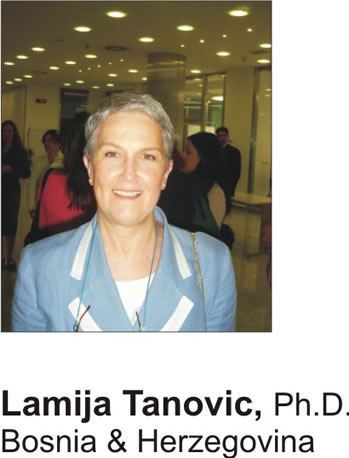Guests
Guest Speaker

Speech
Almost ten years ago, the Dayton Agreement, with its Annex 4, created a truly extravagant state structure for Bosnia and Herzegovina. This strange state structure that the Dayton Agreement inaugurated had, among other things, a whole range of negative effects on the education sector. One entity, Republic Srpska, was set up as a centralized mini-state which has created stronger ties in the sector of education with neighboring Serbia than with the rest of the country. The other entity, the Federation of Bosnia and Herzegovina, has been fragmented into 10 mini-states or cantons, of which each has almost unlimited power in the education sector. Apart from this, there is a third part of Bosnia and Herzegovina-the District of Brcko, which has its own education policies. Therefore, the state of Bosnia and Herzegovina has been left with no power in the education sector. This fragmentation and disorder in the education sector has had many negative effects the repercussions of which we are still unable to fully grasp. Namely, what is happening in the education sector in Bosnia and Herzegovina will have consequences that will be felt for years to come. One of the worst consequences of a badly organized education sector is the apartheid in our primary schools. This apartheid produced the notorious "two schools under one roof" and there are more than 50 such schools. Therefore, thanks to our educational sector we are raising future generations that have nothing in common-they are educated in three supposedly different languages, are part of three different education systems, are taught different versions of their country's history and, worst of all, have no contact. What kind of future can such generations create, tomorrow, when they take over the running of the country?
The situation is not much better in many secondary schools. A visit to the Mostar or Travnik gymnasium is enough to convince us of this. Too many times we have been witness to fights breaking out between high-schoolers of different nationalities in Brcko or Vakuf.
But what about higher education?
Everywhere in the world, an intense process of cooperation, equalization and mobility of students and teachers is taking place in higher education. The result of all this is the internationalization of higher education. However, in Bosnia and Herzegovina, even higher education is divided along ethnic lines, reduced to a local level, very poor and therefore still far away from the so-called "European Area of Higher Education".
Our attempt to adopt the so-called "Framework Law on Higher Education" failed miserably. That law would, more or less, make equal the criteria in higher education and introduce norms, bodies and rules from the Bologna Process. However, for almost two years that law has been just a piece of paper, with very uncertain prospects for the future.
Namely, what sense can there be for some of our ministers to sign the Bologna Declaration and the Lisbon Convention, thus guaranteeing that Bosnia and Herzegovina will work on enforcing the Bologna process and of accepting European diplomas, when there are no institutions at the state level to enforce what has been signed? In this strange state structure created by the Dayton Constitution, there is no Ministry of Education at the state level with adequate powers.
We are living in a world in which higher education is becoming a "public good" and in which growing numbers of young people attend university. In Europe 52%, in Japan 49%, in Canada 59% and in the USA an amazing 81% of young people attend university. Despite the large number of universities in Bosnia and Herzegovina, only 15% of young people go on to attend one. Taking all this into consideration we can see that there is plenty more to be done in the sector of higher education in Bosnia and Herzegovina.
Therefore, in order to create a brighter future, in order to have peace in the region, we must give education its proper place-it must be seen as a priority in this country. It is good to have a country where the legal system functions and where the borders are properly patrolled. It is good to have a country with a strong and united army and police force. However, what is all that worth if the citizens of that country, the new generations, will never learn about their country, will never learn to love their country for its beauty and its history, and, most importantly, will never learn to live together. That is why future leaders, those who make decisions in this country, the members of parliament who pass laws, the ministers who prepare and suggest these laws, have a vast historic responsibility to create peace and a brighter future for this country.
